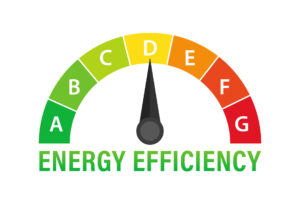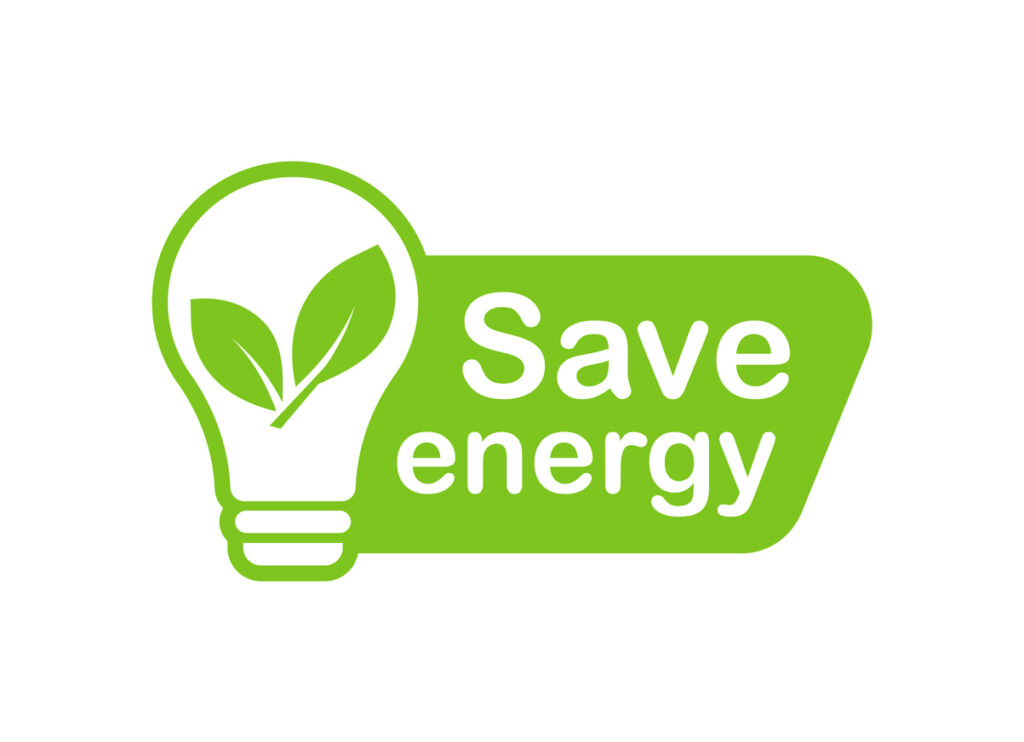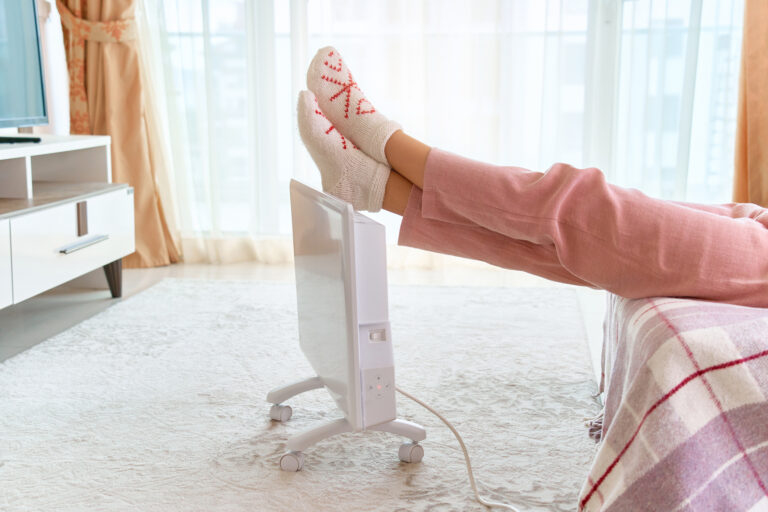Welcome to our in-depth, most economical guide to achieving affordable warmth—a journey into uncovering the cheapest-to-run electric heaters in the UK.
The key lies in understanding the significance of energy efficiency, a concept that has become increasingly vital in our modern lives as energy prices hit all-time highs across the UK.
In this article, we highlight the most economical heaters on the market and how you can make the most out of them.
Which is the cheapest to run electric heater?
Low-wattage electric heaters are going to be the cheapest to run as they don’t require as much electricity as higher-wattage heaters will.
Different types of heaters have varying energy efficiency levels. Halogen heaters, for example, are highly efficient for spot heating since they warm people and objects directly.
Convection heaters, such as oil-filled radiators or glass panel heaters, heat the air and are effective for larger spaces.
Here are three of the most economical electric heater types you can currently run:
Oil-Filled Heaters
Oil-filled radiators will come in many different sizes and energy requirements; yet, their built-in thermostats will control the temperature of your room, meaning they won’t be constantly drawing on power like other plug-in heaters will.
So, while you might be put off by the idea of getting a high-wattage radiator, that power will only be consumed if left on its highest setting without using its thermostat.
Depending on the size of your room, let’s take a look at the most economical electric heaters you can currently be using:
Russell Hobbs 650w
Best for under-desk and small box rooms
Up to 17p p/hour
- Max 650w
- 2.8Kg
- 2 Year Guarantee
Vonhaus 1500w
Best for small to medium sized rooms
Low: 15p
High: 39p
- 3 Heat settings:
600/900/1500w - 6.9Kg
- Black or White
Halogen Heaters
Halogen heaters will provide instant, radiant heat once turned on. They will apply heat directly to you.
They will be less efficient for heating whole rooms, but ideal for sitting in front of them to get warm when you need that quick supply of comfort.
Warmlite 1200W 3 Bar Halogen Heater
Ideal for small rooms and caravans
Low: 10p
High: 31p
- 3 Heat settings:
400/800/1200w - 1.5Kg
- 2 Year guarantee
OMISOON 2000W, ECO Electric Heater
Ideal for small to medium sized rooms
Up to 52p p/hour
- Max 2000w
- 2Kg
- Remote control
Glass Panel Heaters
Glass panel heaters are a form of convection heating and can either come free-standing or wall-mounted. They’ll ensure an even distribution of heated air in any room without emitting CO2 or excessive noise.
Klarstein 2000W Glass Panel Heater
Great for small to medium sized rooms
Up to 52p p/hour
- Max 2000w
- 8Kg
- Remote control
Devola 2000W Smart Electric Glass Panel Heater
Great for small to medium sized rooms
Up to 52p p/hour
- Max 2000w
- 8.5Kg
- Remote control
How much does it cost to run an electric heater?
To work out the costs of running any electrical heater, we must first understand that prices can change throughout the year as energy providers alter their pricing structures.
According to Ofgem, the price you’ll pay on a standard variable tariff in the UK from 1st October to 30th December 2025 will be set at 26 pence per kWh (kilowatt-hour), with a daily standing charge of 53 pence.
So, if you were to use a 1000-watt (1 kWh) electric heater for an hour, you would expect to pay 26 pence plus a 53 pence standing charge. However, using the heater for longer than 1 hour will only cost the additional energy spent (26p/kWh).
Take a look at the energy table below to get an understanding of how much an electric heater will cost to run per hour:
| Power (watts) | Cost (p/hour) |
|---|---|
| 500 | 13p |
| 1000 | 26p |
| 1500 | 39p |
| 2000 | 52p |
| 2500 | 65p |
| 3000 | 78p |
Factors Influencing Heating Costs
Try to consider these factors to increase energy efficiency and save money on your next heating bill:
- Wattage: The wattage rating of an electric heater determines its power consumption. Higher-wattage heaters generate more heat but also consume more electricity.
- Insulation: The level of insulation in your home plays a crucial role in heating costs. Well-insulated spaces retain heat more effectively, reducing the workload on the heater.
- Thermostat Settings: Proper thermostat management can reduce heating costs. Lowering the thermostat a few degrees when you’re away or asleep can lead to long term savings.
- Room Size: An undersized heater will struggle to warm a large space, leading to excessive run times. Also, using a heater that’s too powerful for a small room can lead to overheating.
Energy Efficiency Ratings

Appliances undergo testing to evaluate their energy consumption in typical usage scenarios. These tests result in an energy efficiency rating, often on a scale ranging from A (most efficient within its category) to G (least efficient).
These ratings will help you make informed decisions that can lead to cost savings, reduced energy consumption, and a lower environmental impact.
Let’s dive into the importance of these ratings and how to find and understand them when choosing an electric heater:
Importance of Energy Efficiency Ratings
- Cost Savings: Energy-efficient appliances consume less electricity to provide the same level of comfort or heating. As a result, they typically result in lower utility bills over the long term.
- Durability: Heaters often use advanced technology and better materials, potentially increasing their lifespan and reducing maintenance costs.
- Comfort: Energy-efficient heaters are designed to provide more consistent and even heating, ensuring that your living spaces remain comfortable without frequent temperature fluctuations.
Finding Ratings
- Product Labelling: Manufacturers are required to provide energy efficiency ratings on product labels and specifications sheets. Look for these labels on the heater’s packaging or in the product documentation.
- Manufacturer Websites: Visit the manufacturer’s website for detailed information about the product’s energy efficiency ratings. They often provide downloadable product manuals and specifications.
- Government Energy Efficiency Resources: Government websites, offer valuable resources and tools to help consumers understand and compare energy efficiency ratings.
Combine this knowledge with factors like wattage, room size, and insulation to make a well-informed decision that balances comfort and efficiency while reducing operating costs.
Energy ratings are also found on other electrical houshold appliances such as:
- televisions
- dishwashers
- clothes dryers
- fridge freezers
- washing machines
- computer monitors
Tips for saving energy with your electric heater

Maximizing the efficiency of electric heaters helps reduce energy consumption and lower heating costs. Here are some essential energy-saving tips to make the most out of your heater:
- Proper Placement:
- Central Location: Place the heater in a central location within the room to ensure even heat distribution. Avoid placing it near windows, doors, or other sources of drafts.
- Avoid Obstructions: Make sure that the heater’s airflow is not blocked by furniture, curtains, or other objects. Proper airflow allows the heater to work efficiently.
- Improve Insulation:
- Seal Air Leaks: Identify and seal any gaps or cracks around windows, doors, and walls with draught excluders to prevent cold air from entering and warm air from escaping. Weather-stripping and caulking are effective tools for this.
- Insulate the Ceiling and Attic: Insulate the ceiling and attic space to prevent heat from escaping through the roof. Better insulation is key to saving energy.
- Regular Maintenance:
- Keep your electric heater clean and well-maintained. Dust and debris can collect on heating elements or in the fan. Clean or replace filters as recommended by the manufacturer.
- Regularly Monitor Energy Usage:
- Keep an eye on your energy usage by using energy monitoring tools or smart home apps. This awareness can help you make real-time adjustments to reduce energy waste.
With these essential tips, you can increase the efficiency of your electric heater, stay warm, and save on heating costs.
Electric Heater FAQ’s
Infrared radiation is completely safe and is not the same as harmful ultraviolet (UV) radiation.
Summary
Investing in the cheapest to run electric heaters is the most economical, financial decision that brings numerous benefits, including immediate cost savings, financial stability, environmental responsibility, enhanced comfort, and long-term value.
Affordable heating not only saves money but also contributes to a sustainable and eco-conscious way of living.









